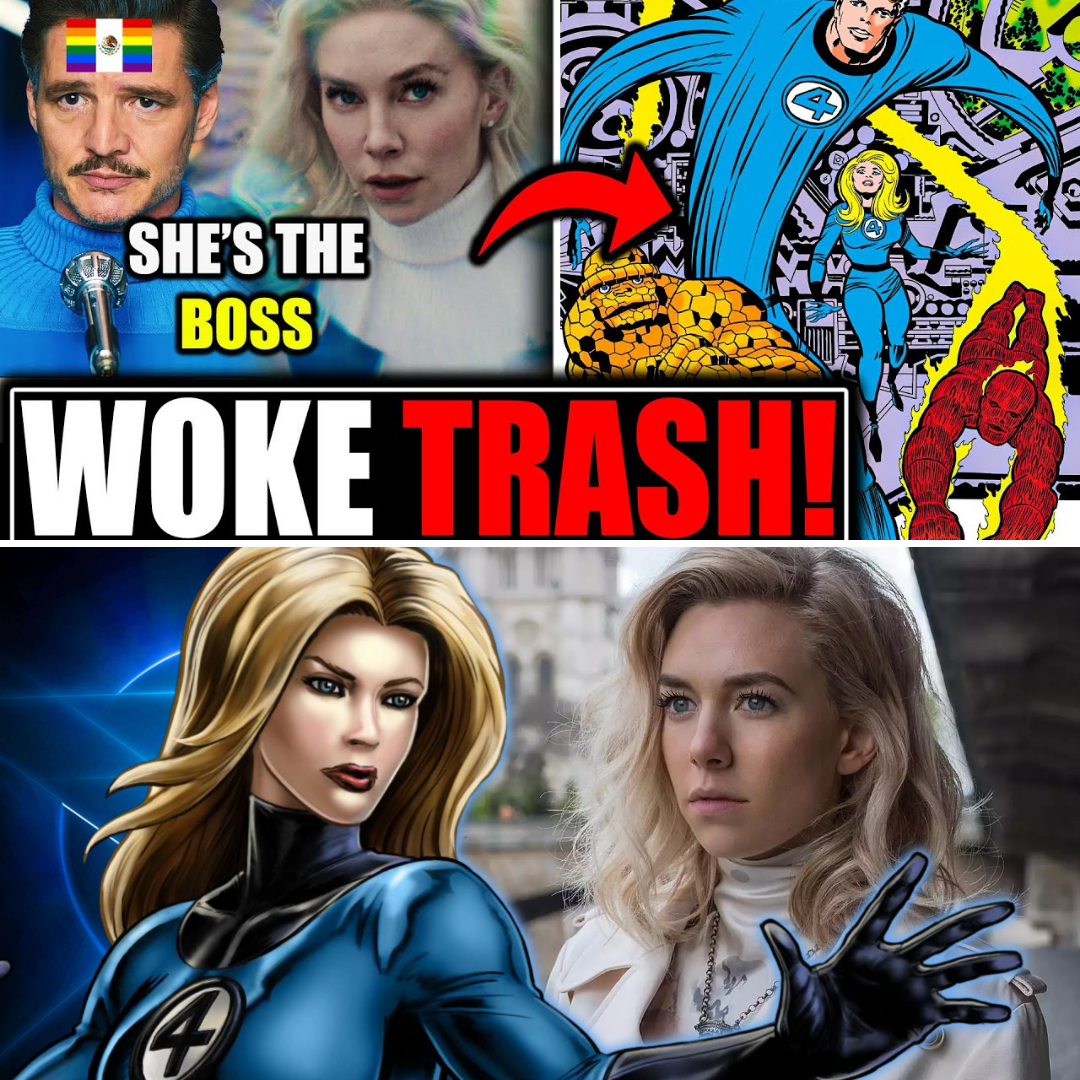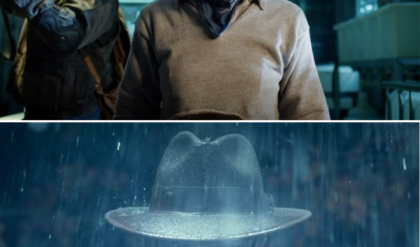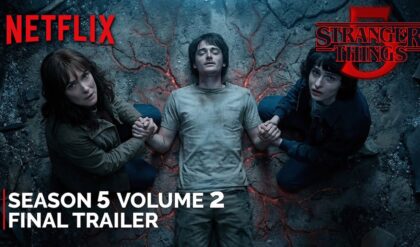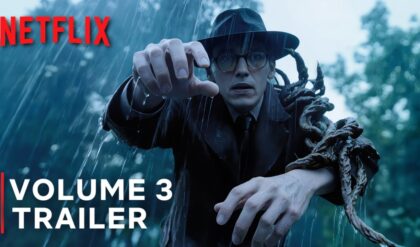Sue Storm Leads Fantastic Four: A Feminist Woke Disaster?
The Marvel Cinematic Universe (MCU) is gearing up for its latest blockbuster, The Fantastic Four: First Steps, set to hit theaters on July 25, 2025. Among the many revelations about the film, one has ignited a firestorm of debate: Susan “Sue” Storm, portrayed by Vanessa Kirby, will take the reins as the leader of Marvel’s First Family. This shift from the traditional leadership of Reed Richards, aka Mr. Fantastic, has sparked polarized reactions, with some fans hailing it as a bold, progressive move and others decrying it as a “feminist woke disaster.” But what’s driving this controversy, and what does Sue’s leadership mean for the Fantastic Four’s legacy? Let’s dive into the details, exploring the film’s context, the character’s history, and the cultural currents shaping this debate.

A New Era for the Fantastic Four
The Fantastic Four: First Steps introduces Marvel’s iconic superhero team to the MCU, set in the 1960s with a retro aesthetic that nods to the Silver Age of comics. The cast includes Pedro Pascal as Reed Richards, Joseph Quinn as Johnny Storm (Human Torch), Ebon Moss-Bachrach as Ben Grimm (The Thing), and Vanessa Kirby as Sue Storm (Invisible Woman). The film, directed by Matt Shakman, promises a fresh take, focusing on family dynamics and the team’s battle against cosmic threats like Galactus and the Silver Surfer, portrayed by Julia Garner as Shalla-Bal. A key plot point revealed in trailers is Sue’s pregnancy with Franklin Richards, adding a personal stakes to the team’s mission.
Producer Grant Curtis has emphasized Sue’s central role, stating, “If you go back through the comics, you realize that Sue Storm is arguably the leader of the Fantastic Four, because without Sue Storm, everything falls apart.” Director Shakman further described Sue as “the inspiring, idealistic leader” and head of the Future Foundation, a fictional think tank dedicated to global peace and scientific advancement. Vanessa Kirby has also spoken about modernizing Sue, aiming to avoid stereotypical portrayals of femininity while embracing her roles as a mother, wife, sister, and superhero. These comments have fueled speculation that the film prioritizes Sue’s emotional and intellectual leadership over Reed’s traditional strategic role, prompting both excitement and backlash.
The Comics Context: Sue Storm’s Evolution
To understand the controversy, it’s worth examining Sue Storm’s history in the comics. Created by Stan Lee and Jack Kirby in The Fantastic Four #1 (November 1961), Sue was initially known as the Invisible Girl, a reflection of the era’s gender norms. Her early powers were limited to invisibility, and she often played a supportive role, sometimes depicted as a damsel in distress or relegated to domestic concerns. For example, in Fantastic Four #5, she was taken hostage by Dr. Doom, and in Fantastic Four #12, General Ross dismissed her role in a mission against the Hulk, suggesting she was there to boost “men’s morale.” These moments, viewed through a modern lens, highlight the casual sexism of 1960s comics.
However, Sue’s character evolved significantly over time. By Fantastic Four #22 (1964), she gained the ability to create and manipulate force fields, making her one of Marvel’s most powerful heroes. In the 1980s, under writer John Byrne, she adopted the name Invisible Woman, signaling a more confident and assertive identity. She took on leadership roles, notably in the 1990s when Reed was presumed dead, and by the 2000s, comics like those by Dan Slott and Ryan North portrayed her as the team’s emotional and moral compass, often rivaling Reed’s intellectual leadership. For instance, in Fantastic Four #284 (1985), Sue declared, “There is no Invisible Girl anymore, Reed. She died when the Psycho-Man twisted her soul. From now on, I am the Invisible Woman!” This evolution shows Sue as a complex figure, balancing strength, vulnerability, and agency.
In the comics, Reed has typically been the acknowledged leader, driven by his scientific genius and strategic mind. However, Sue’s contributions—her emotional intelligence, force-field mastery, and ability to hold the team together—have often been portrayed as equally vital. Moments like her outsmarting Dr. Doom in Fantastic Four #5 by using her invisibility strategically or voting for herself as leader in Fantastic Four #23 demonstrate her early agency, even within the constraints of 1960s storytelling. Thus, while Curtis’s claim that Sue was “always” the leader may stretch the truth, there’s precedent for her stepping into that role, making the film’s choice grounded in certain comic runs but a departure from the traditional dynamic.
The Backlash: A “Woke” Disaster?
The decision to position Sue as the leader has drawn sharp criticism from some fans, who label the film a “feminist woke disaster.” Posts on platforms like X and YouTube channels such as Cosmic Book News and Geeks + Gamers reflect this sentiment, arguing that the shift undermines the Fantastic Four’s core dynamic and panders to modern political agendas. Critics point to several perceived issues:
Reed Richards’ Diminished Role: Some fans argue that making Sue the leader sidelines Reed, traditionally the team’s intellectual pillar. They claim Pedro Pascal’s portrayal, described as a “utopian visionary” who “loves being led” by Sue, paints Reed as subservient or weak, contrasting with his comic book persona as a decisive genius. Rumors, like those from leaker WDW Pro, suggest the film depicts Reed as embodying “toxic masculinity,” a trope that allegedly drove actors like Adam Driver to pass on the role.
Feminist Overreach: Detractors assert that the film’s focus on Sue as a “girl-boss” leader, coupled with her role as head of the Future Foundation and a pregnant superhero, feels like an overcorrection for past portrayals. They argue that emphasizing Sue’s emotional intelligence over Reed’s scientific prowess aligns with what they call the “M She U” (a pejorative term for MCU’s female-led projects), citing films like Captain Marvel and She-Hulk as examples of divisive “woke” storytelling.
Changes to Other Characters: The backlash extends beyond Sue. Joseph Quinn’s Johnny Storm is described as less womanizing and more introspective, moving away from the brash, charismatic persona played by Chris Evans in 2005. Ebon Moss-Bachrach’s Ben Grimm is portrayed as softer, with a higher-pitched voice and domestic traits like cooking, which some fans see as “neutering” his tough, Everyman charm. The gender-swapped Silver Surfer (Shalla-Bal) has also drawn ire, with fans tweeting, “Silver Surfer is a dude. Disney don’t learn,” despite Shalla-Bal’s precedent in comics.
These critics predict commercial failure, with some, like X user @missminutesborn, forecasting the film will gross less than $800 million due to its “woke” agenda. They argue that Marvel’s focus on modern sensibilities alienates its core audience, pointing to the 2015 Fantastic Four flop and recent MCU struggles as cautionary tales.
The Defense: A Modern, Faithful Take
On the other side, supporters argue that Sue’s leadership is both a faithful adaptation and a necessary update. They point to comic runs where Sue has led the team, such as during Reed’s absences in the 1990s, and her role as the “beating heart” of the Fantastic Four, as noted in CBR articles. The film’s emphasis on family dynamics aligns with Stan Lee’s original vision, where Sue was the emotional glue holding the team together. Her pregnancy with Franklin Richards, a pivotal character in the comics, adds depth, showing her balancing motherhood with heroism—a theme that resonates with modern audiences.
Vanessa Kirby’s comments about avoiding “tropes or archetypes” suggest an effort to move beyond the hypersexualized Sue of the 2005 and 2007 films, where Jessica Alba’s portrayal was criticized for focusing on her appearance. Supporters argue that portraying Sue as a multifaceted leader—emotionally intelligent, politically powerful, and a force-field-wielding hero—corrects past missteps, like Kate Mara’s underwhelming role in 2015. Director Shakman’s description of Sue and Reed as partners building an “idealistic society” frames their dynamic as equal, not a zero-sum game where Sue’s rise diminishes Reed.
The “woke” label, defenders argue, is an overreaction. Sue’s leadership doesn’t erase Reed’s genius or the team’s ensemble nature. Posts on X, like @ediblplaydough’s, emphasize that Sue’s maternal role is consistent with her comic book character and not anti-feminist. The film’s 1960s setting and retro aesthetic suggest a balance between honoring the source material and updating it for today’s audience, much like Captain America: The First Avenger did successfully. Supporters also note that the Fantastic Four have always been about family, not rigid hierarchies, making Sue’s leadership a natural evolution.
Cultural Context: Why the Divide?
The debate over Sue’s leadership reflects broader cultural tensions. The term “woke,” originally about social awareness, has become a catch-all for perceived overreaches in diversity and inclusion. Marvel’s post-Avengers: Endgame era, with films like Eternals and The Marvels, has faced criticism for prioritizing representation over storytelling, leading to fan fatigue. The Fantastic Four, as Marvel’s First Family, carry high expectations, and any deviation from the comics—especially after three lackluster films (1994, 2005-2007, 2015)—is scrutinized.
Sue’s elevation also taps into discussions about gender in superhero media. Historically, female characters like Sue were sidelined or sexualized, as seen in early comics where she was called “Invisible Girl” and dismissed by villains and allies alike. Second-wave feminism, which gained traction after The Feminine Mystique (1963), influenced later comic runs that empowered Sue, but the 1960s setting of First Steps requires a delicate balance to avoid anachronistic portrayals. Critics of the “feminist” label argue it’s unfair to dismiss Sue’s leadership as pandering when her comic book arc supports it, while detractors see it as a symptom of Hollywood’s broader push for female-led narratives, sometimes at the expense of male characters.
What to Expect from The Fantastic Four: First Steps
While full plot details remain under wraps, the film’s trailers and interviews suggest a story centered on the Fantastic Four’s unity against Galactus, with Sue’s leadership and pregnancy as key emotional anchors. The inclusion of Franklin Richards hints at future MCU arcs, given his reality-warping powers in the comics. The retro setting and aesthetic, including the Fantasticar and HERBIE the robot, aim to capture the wonder of the original comics, while the cast’s chemistry—described by Joseph Quinn as “complicated and caring”—promises a focus on family dynamics.
Whether Sue’s leadership will feel organic or forced depends on execution. If the film portrays her as a compelling, flawed leader who complements Reed’s strengths, it could silence critics. However, if it leans too heavily into didactic messaging, as some fear, it risks alienating fans already skeptical of Marvel’s direction. The gender-swapped Silver Surfer and altered characterizations of Johnny and Ben add to the stakes, making First Steps a litmus test for Marvel’s ability to balance innovation with fidelity.
Conclusion: A Step Forward or a Misstep?
The controversy over Sue Storm’s leadership in The Fantastic Four: First Steps encapsulates the challenges of adapting beloved characters for a modern audience. Sue’s role as leader has roots in the comics, reflecting her growth from a sidelined heroine to a powerhouse in her own right. Yet, the backlash highlights a disconnect between some fans and Marvel’s evolving vision, with terms like “woke” and “feminist” becoming lightning rods for deeper frustrations. As the film approaches, its success will hinge on whether it can deliver a cohesive, heartfelt story that honors the Fantastic Four’s legacy while embracing Sue’s well-earned spotlight.
For now, the debate rages on, with fans split between those who see Sue’s leadership as a triumph and those who fear it’s a step too far. Whatever your stance, The Fantastic Four: First Steps is poised to be one of the MCU’s most talked-about entries. Will it redefine Marvel’s First Family or stumble under the weight of expectations? Only time—and ticket sales—will tell.





